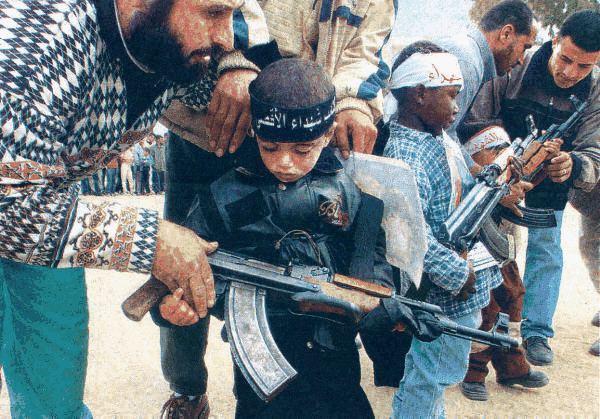|
By Linda Chavez
Chicago Sun-Times
Wednesday, October 10, 2001
We are not fighting a war on terrorism. Terrorism is the means by which our
enemy chooses to wage war against us, but we should not confuse its tactics with
the nature of the enemy itself. The enemy has an ideology. It has a command
structure. It has troops. And it is clear in its aim: nothing short of the
destruction of our civilization.
The enemy is militant Islamic fundamentalism. The command structure is made up
of hundreds of mullahs around the world, including some living in this country, who
preach death to the infidels. Its troops include not just the thousands of trained
terrorists but millions of others who support the mullahs and finance the
terrorists through their donations to radical Islamic groups. To pretend
otherwise risks not only your own defeat, but that of the moderate Muslim
world as well.
In his 1996 book The Clash of Civilizations and the Remaking of World Order, Harvard
political scientist Samuel P. Huntington presciently described "a quasi war develop[ing]
between Islam and the West." Even before the attacks on the World Trade Center and the
Pentagon, Huntington noted, "many more Westerners have been killed in this quasi war
than were killed in the 'real' war in the Gulf." The direction of Islam as a religion
has become increasingly threatening to non-believers, not just in the West but throughout
the world. Its threat extends beyond the Middle East to Asia and Africa, even to the United
States, where some fundamentalist imams spread their hateful doctrines protected by our
First Amendment.
Not all, or even most, Muslims are our enemies, certainly. Indeed, the moderate Islamic nations
are on the front lines of this war and have been among its first casualties, starting with the
Iranian revolution in 1979. Some of the most brutal tactics of the fundamentalists have been
used against fellow Muslims in Egypt, Morocco, Afghanistan and elsewhere. Nonetheless, the
response of virtually every moderate Muslim leader to the threat posed by fundamentalists
has been to accede to the fundamentalists' interpretation of Islam, and to further the
Islamization of all social, cultural and political institutions in their countries. Even
Turkey, which since Mustafa Kemal Ataturk's policies of secularization in the 1920s and
1930s has been the most pro-Western Muslim nation, has become more Islamist in the last
few years. As Huntington observed, every Muslim country in the world is more Islamist
today than it was two decades ago, with the exception of Iran.
Despite what our leaders keep telling us, Islam is not inherently a peaceful religion. Unlike
Christianity, in whose name wars have been fought but without any Scriptural basis to support
those wars to be found in the teachings of Jesus Christ, Islam can find explicit justification
for its jihad or "holy war" within its sacred text.
| |
